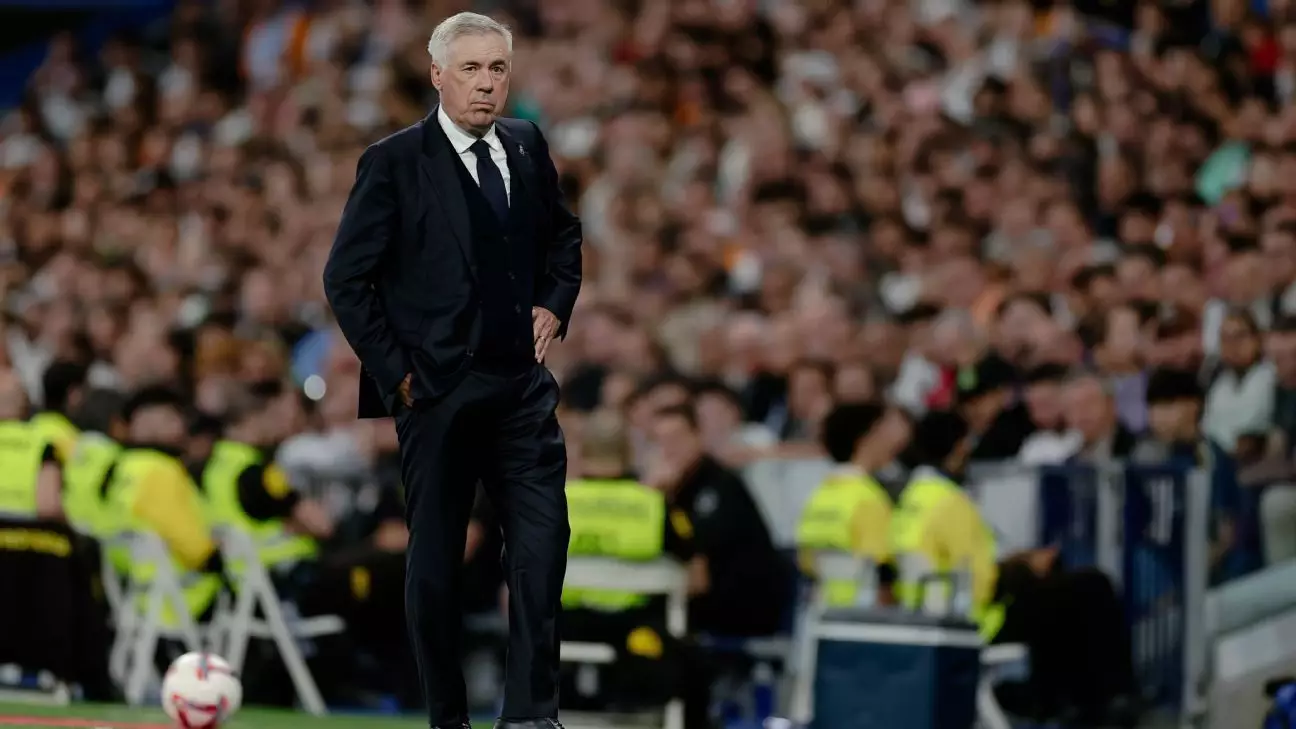The recent devastating flash floods in Valencia have gripped the attention of not just Spain, but the entire world, drawing a notable response from the realms of football. The catastrophe, which claimed the lives of at least 217 people and left thousands displaced, has sparked intense conversations about the moral responsibilities of sporting events amidst national tragedies. Real Madrid coach Carlo Ancelotti has voiced his concern regarding the continuation of football amidst such heartbreaking circumstances, revealing a significant division between institutional decision-makers and the sentiments of players and coaches alike.
The Aftermath of the Floods
Flash floods in Valencia are among the most severe natural disasters Spain has faced in recent history, causing irreparable damage to homes, businesses, and public infrastructure. The unfolding community crisis prompted LaLiga authorities to postpone certain matches but not the entire schedule. This partial decision raised eyebrows, with many, including Ancelotti and Atlético Madrid’s coach Diego Simeone, calling into question the rationale behind allowing some fixtures to proceed while canceling others.
The local governments and the Red Cross have rallied together in efforts to support those affected, with LaLiga initiating fundraising efforts to assist relief endeavors. This collaboration presents a stark contrast to the usual aspect of sport as mere entertainment; it underlines the unified stance of the sporting community in recognizing the gravity of the situation and attempting to make a positive impact.
Ancelotti articulated the discomfort shared among coaches regarding the ongoing matches, expressing a collective desire for a complete postponement. “When people are not OK, you don’t have to party,” he stated, indicating that sporting events should not simply proceed as planned while communities are in mourning and suffering. Such insights from football figures reveal the ethical considerations at play in sports, highlighting the inherent tension between professional commitments and communal empathy.
Echoing this sentiment, players like Lucas Vázquez underscored the limited voice coaches and players have in these decisions. Their comments reflect a disconcerting reality where the powers that be in football often dictate the course of events, regardless of the sentiments expressed by those directly involved. Vázquez’s words, “Our opinion is zero, our strength is zero,” encapsulate a deep sense of frustration, reflecting how the sanctity of community struggles often takes a backseat to economic interests and schedules.
A Balancing Act
While many within the football world advocate for a halt to the games, the logistical complexity of canceling matches poses significant challenges. The sport operates under a set schedule, where financial ramifications could have ripple effects throughout the industry, from broadcasting deals to player contracts. However, the ethical obligation to prioritize human life and well-being over entertainment should not be sidelined. This dilemma puts LaLiga in a precarious position, balancing commercial interests with moral responsibilities.
Ancelotti’s reflective discussions prompt a deeper analysis of the role that sports play within society. With the sentiment that “football is the most important of the least important things,” he stresses a re-evaluation of priorities. Professional athletes and coaches are expected to compartmentalize their lives—performing their roles even in dark times. Yet their insistence on acknowledging the tragedies reveals a nagging awareness; sports cannot simply exist in isolation but must adhere to the larger fabric of society.
As LaLiga navigates its choices in the wake of this tragedy, the emphasis should shift towards community-driven responses rather than purely commercial concerns. This incident has opened doors for reflection on how the sports community can better align itself with the needs and emotional states of the public it entertains. The ability for players and coaches to step up and support their communities should not be overshadowed by the pressure to perform.
Ultimately, it is imperative to align sports with social responsibility. The calls from figures like Ancelotti should encourage leaders within football to entirely reconsider the way the game engages with society. While football often provides a source of joy and escape, in times of crisis, it must embrace its role as a cornerstone of social solidarity. Moving forward, it could transform not only how football is played but how it is perceived, nourishing the essential bond between sport, players, and the community they serve.

